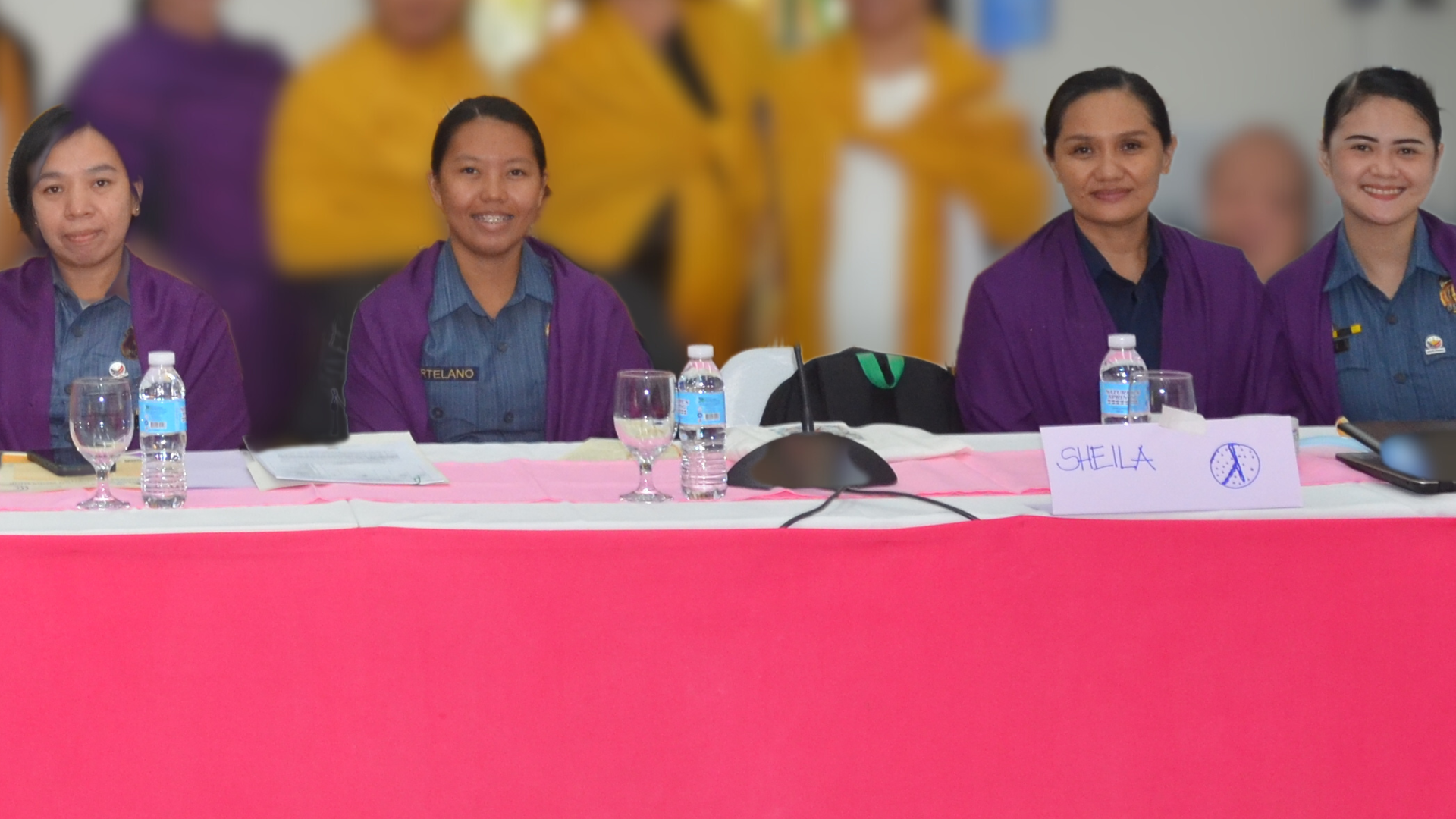philippines - Mitigation
PLT Sheila Grace Vertudes, PAT Bhea P. Asiong, PAT Joy T. Hortelano, & PSSG Shiela Abdurahman

- Actor/Organisation
- PLT Sheila Grace Vertudes, PAT Bhea P. Asiong, PAT Joy T. Hortelano, & PSSG Shiela Abdurahman / Philippine Women and Children Protection Centre PNP-CPPO (PNP Cebu Provincial Office)
- Current Title/Designation
- Women and Children's Protection
- Expertise/Focus Area
- Women and Children's Protection
- Date of Interview/Research
- 4 October 2024
- Location of Interview
- DepEd Ecotech, Cebu City
- Diplomacy Track
- 1.5
Starting Points
Police Lieutenant (PLT) Sheila Grace Vertudes, Patrolwoman (PAT) Bhea P. Asiong, Patrolwoman (PAT) Joy T. Hortelano, and Police Staff Sergeant (PSSG) Shiela Abdurahman are key members of the Women and Children Protection Centre (WCPC) - Province of Cebu, which operates under the Philippine National Police (PNP). The WCPC is a specialised unit within the PNP dedicated to addressing and preventing Violence Against Women and Children (VAWC). It plays a crucial role in the PNP's mission to provide protection and support for victims of gender-based violence, sexual abuse, and exploitation across the Philippines.
Peace Journey
The WCPC plays a vital role in addressing and preventing violence against women and children. It is dedicated to providing immediate protection and assistance to victims of domestic violence, sexual abuse, trafficking, and exploitation, offering services such as temporary shelter, medical attention, and psychological support. It is also responsible for investigating cases of gender-based violence and working with law enforcement agencies to ensure that perpetrators are held accountable under the law.
In addition to its core functions, it provides legal assistance to victims, helping them navigate the legal system and protect their rights throughout the process. Moreover, it is actively involved in public education and advocacy, conducting awareness campaigns and training programmes for the public, local government units, and law enforcement, aimed at recognising signs of abuse and promoting the legal rights of women and children.
Collaboration with other government agencies, non-governmental organisations (NGOs), and community groups is key to its work. By creating a network of support, the centre ensures a holistic approach to addressing issues like domestic violence, child labour, and trafficking. Officers within the WCPC, such as PLT Sheila Grace Vertudes, PAT Bhea P. Asiong, PAT Joy T. Hortelano, and PSSG Shiela Abdurahman, play instrumental roles in offering immediate assistance, investigating cases, and coordinating with other agencies to provide comprehensive care for victims, including legal aid, medical support, and psychological counselling.
The work of this centre is crucial in creating a safer environment for women and children in the Philippines. By offering a safe space for victims, providing the necessary resources for recovery, and advocating for social change, it contributes significantly to reducing violence and empowering women and children to live free from abuse. Ultimately, its efforts ensure that survivors receive justice and support while working to prevent further violence and promote lasting social change.
Success Stories
The WCPC has been instrumental in holding perpetrators accountable for crimes such as sexual abuse, trafficking, and domestic violence. Through careful investigation, evidence collection, and legal advocacy, the centre has contributed to the successful conviction of abusers, providing justice and closure to victims.
Another notable achievement is the empowerment of victims. The centre offers various services, including counselling, legal aid, and medical support, which help victims regain their confidence and rebuild their lives. Many survivors have successfully reintegrated into society and begun their recovery journey with the centre’s assistance.
Furthermore, it is also committed to prevention and awareness campaigns, engaging in public education programmes that raise awareness about the rights of women and children, as well as the legal protections available to them. These campaigns empower communities to speak out against abuse, often preventing further incidents of violence.
Additionally, the centre’s collaboration with local agencies—including local government units, NGOs, and other law enforcement bodies—has created a network of support for victims. This collaboration has helped communities recognise and address abuse, fostering safer environments for women and children.
-
Implementing AgencyAWPR Philippines
-
Lead ResearcherDr. Gloria Jumamil-Mercado
-
Co-Researcher/Research Assistant(s)Violeta T. Veloso; Angeli Joyce Barafon; Jean Celeste Paredes; Jennifer Gonzales; Rex Francine Ferrer
-
Date Research2024-2025










